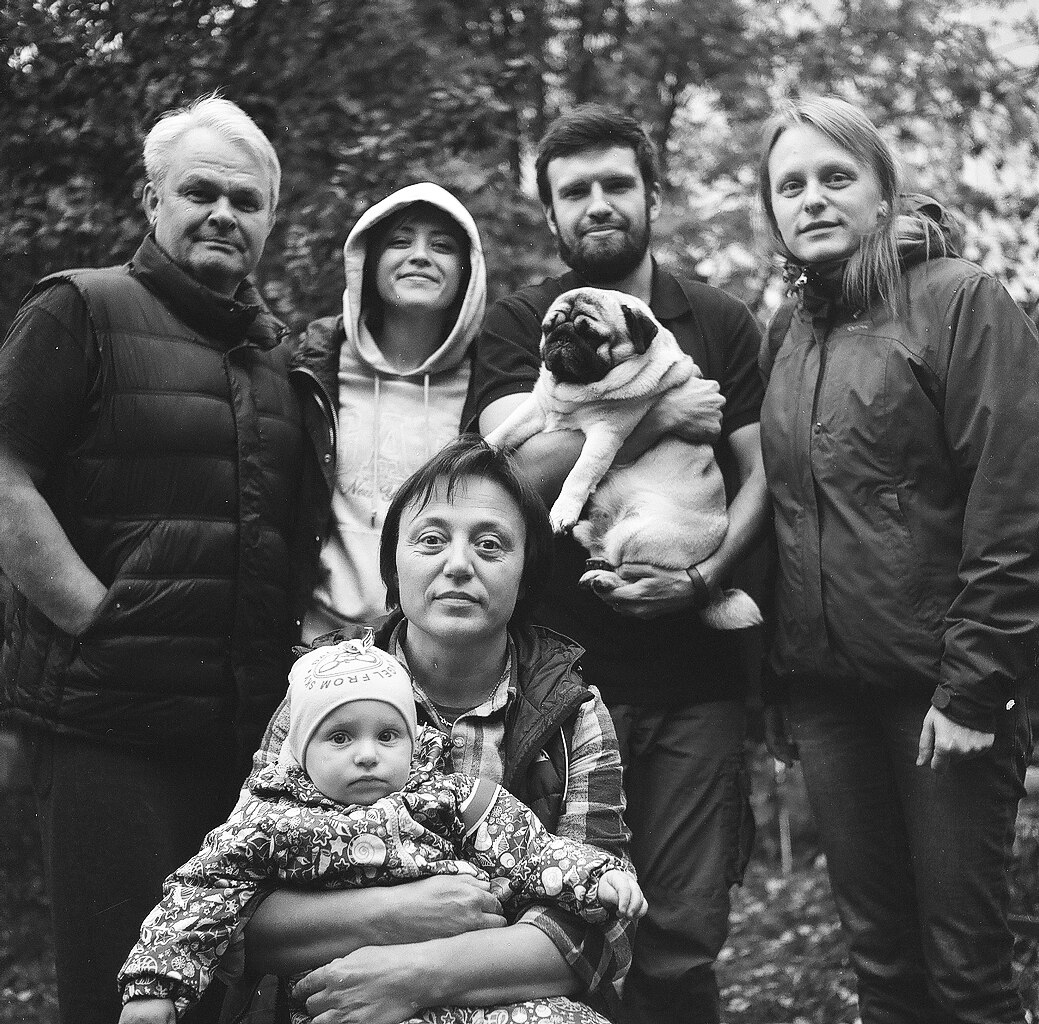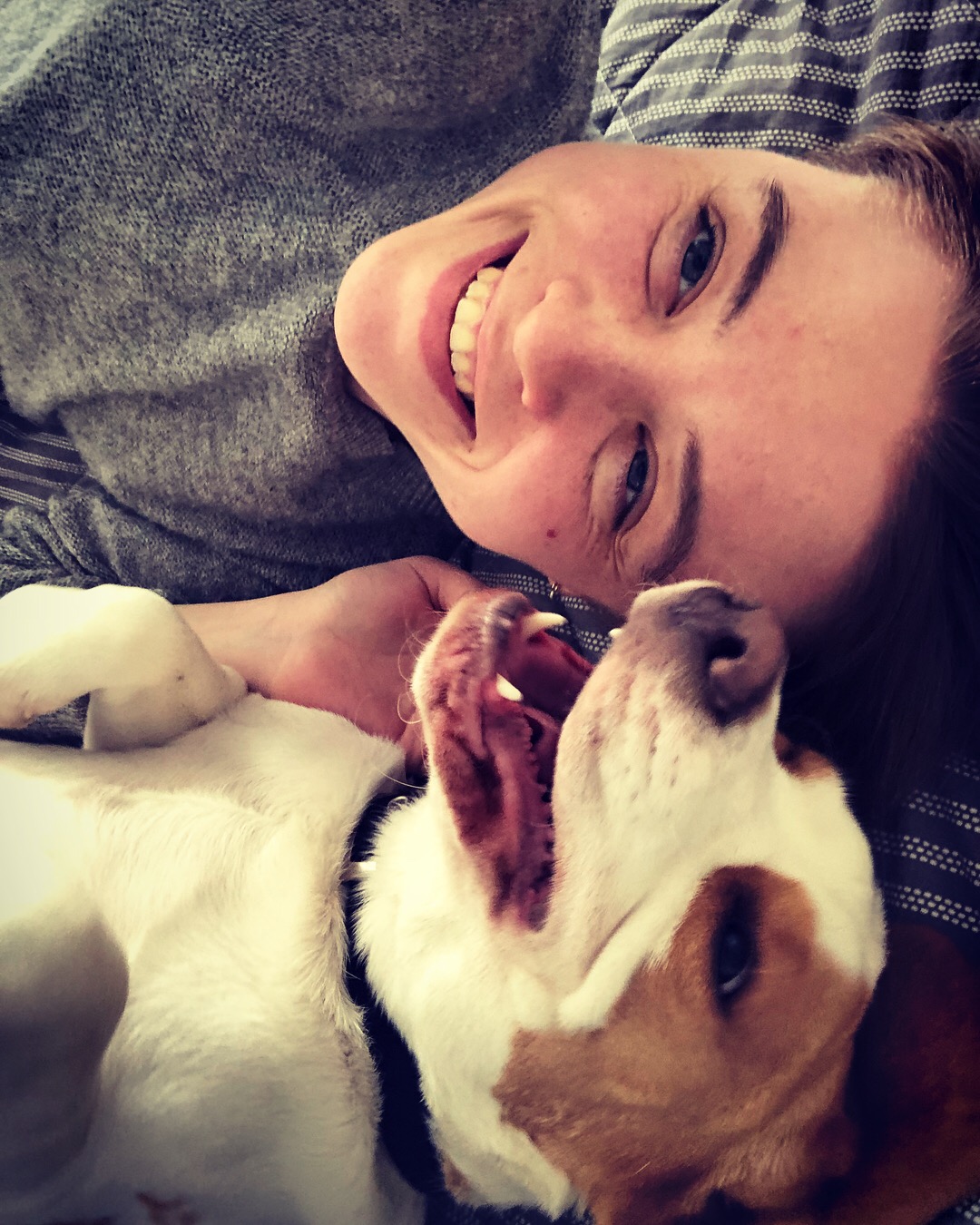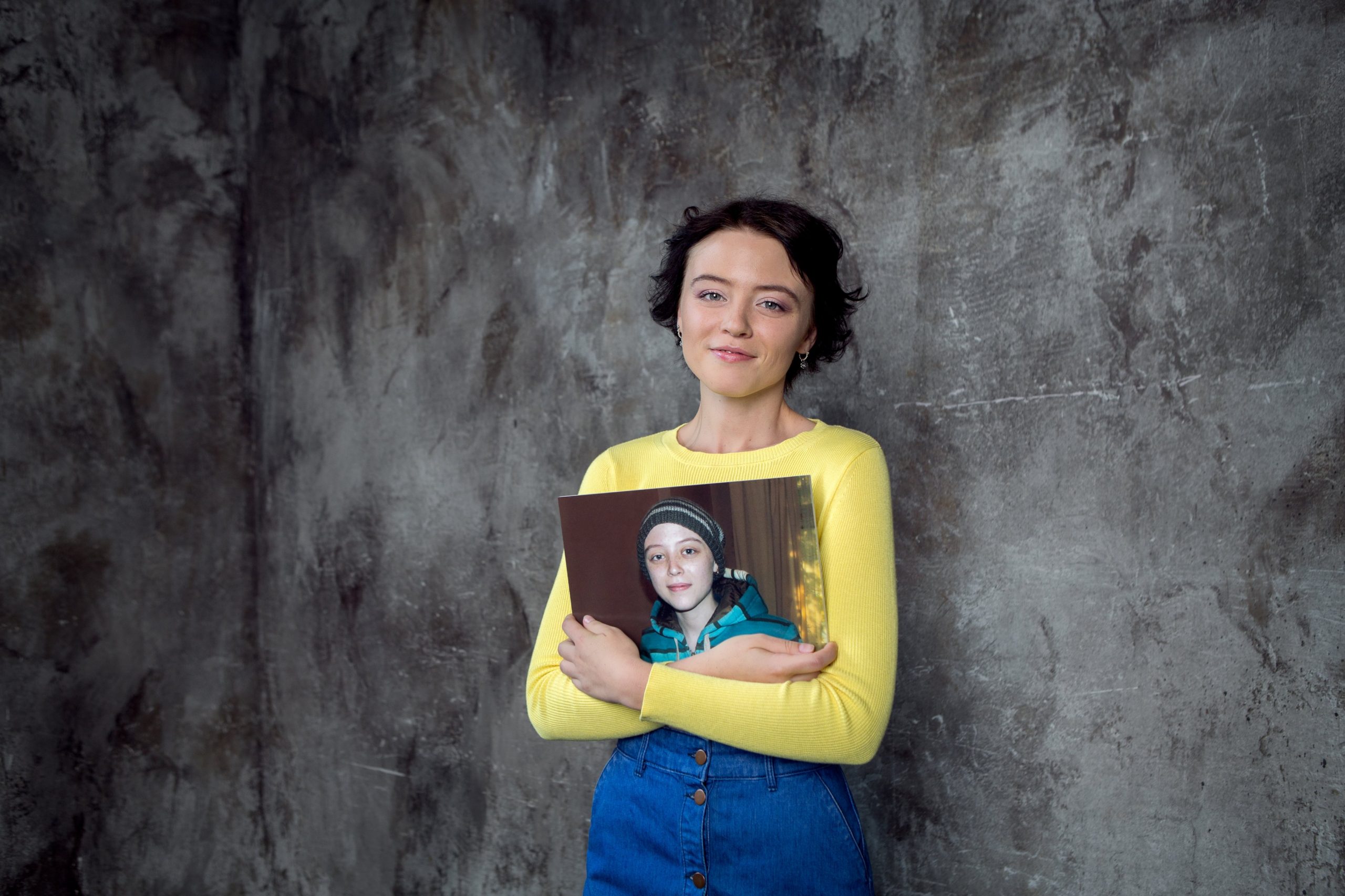Ten years later: “I don’t divide my life into ‘before’ and ‘after’”
As a 15-year-old, Zhenya Vaneeva was hospitalised with Hodgkin’s lymphoma. She went through 6 chemotherapy cycles and 2 radiation therapy cycles, and in December 2008 she was released from the hospital. Today, Zhenya comes to clinics not as a patient but as a member of the Podari Zhizn Foundation, where she began work as a press officer two years ago. Now, 10 years later, Zhenya recalls the past and shares her thoughts about the future.
My dad really helped me when I was ill, as he told me, “You just have to keep putting one foot in front of the other, to keep moving forward, no matter how hard it is.”

Zhenya with her family
The first two months were grueling. I lost 20 kg, I could barely walk and I spent a lot of time crying. But one day I was leaving the ward in a wheelchair and realised that I’d reached my limit, the line I couldn’t cross. I just couldn’t let myself get any weaker. I had to pull myself together and fight back against the disease. At some point, I began to walk, and I felt better. My test results began to improve, and they even started letting me spend time outside the hospital, with my relatives in Moscow. It gave me new strength.
I always tried to turn everything bad into something good, or even something magical. One day I felt ill on the metro and they had to carry me on a stretcher. At that moment, I began to imagine myself as an Oriental princess.
Illness can turn even a little child into an adult. I developed a different system of values, where the most important things are life, friends, and family. But I don’t divide my life into “before” and “after” the illness. Life goes on, and the illness was a trial given to me, for reasons I don’t know. Perhaps it prepared me for other difficult challenges that still lie ahead.
When I came back to ordinary life, I got very irritated when my girlfriends started talking about problems with school or boys. How could you even call something like that a problem?! At 16, I felt like an adult woman who’d left her girlish troubles far behind. But after some time, I found myself talking about the very same “problems”, and everything went back to how it should be.
This year at work, I’ve learned how to edit videos and make basic animations, and the deeper I immerse myself in these things, the more I want to study and improve. It’s great when your effort gets results, whether that’s in the form of money gathered for a child in the charity’s care or in the form of somebody deciding to become a donor.
I’m virtually always working with the volunteers I meet during my work and mostly making videos of people I’ve never met in my life. The preparations and negotiations don’t always go smoothly, but I’ve finally stopped being scared to phone strangers and ask them to take part in our project. After all, we’re doing something good on a great scale.
“Family Blood” is a project about bone marrow donation, about donors and recipients. When you learn about the people and their stories, every time you find yourself awed by their strength and resilience, and by life itself… “Family Blood” makes you believe in happy endings.
One of my favourite projects is “Employee of the Month”. This is a good opportunity to show our benefactors and our friends what we do every day, what projects we run and what difficulties we overcome. The project allows us to put a human face on the charity, to demonstrate that we are ordinary people, not superheroes. For me, it’s also an opportunity to get to know everyone better. After all, thanks to my background, many of these people have known me for a long time. As for me, with every interview, I discover an extraordinary world of wonderful, altruistic people.
We recently started experimenting with fundraising through posting video narratives about the children in our care on social media. I don’t always find it easy to talk to mothers and their children in a hospital, but when you remember your cause, you find the strength to go to the wards, ask what are sometimes uncomfortable questions, and witness people’s anxiety and tears. I think my own experiences let me better understand people who are in trouble.
I’m frequently too busy to have time for self-pity. But I do have my own recipes for recovery. During weekends, I set aside my work tasks and spend time with family or friends, or do lots of walking or take photographs. In the evenings, I jog—my favourite songs in my ears, my dog on a leash, and the Moscow river at my side. Jogging is a time to be alone with myself, to think, and to find answers to important questions.

Zhenya adores her pooch
Nearly every day, I see how the millions of rubles needed to help severely ill children come together from countless ordinary people responding to our appeals, from 50- or 100-ruble donations. I take it as proof that you don’t need vast riches to support a charity, just the desire to do it.
I want all my activities, both my work and my daily life, to help people. To be needed, helpful, important—these are my priorities. I also dream of getting married and raising children.
What matters most is not to lose faith in the success of your treatment, and to accept what’s happening to you. Yes, that’s tough. Yes, I’m far away from home, from my friends and loved ones, from my hobbies and favourite things to do, but that’s all temporary. It will all be mine again when I come home healthy.
Read Zhenya’s interview for Gift of Life anniversary feature Power of 10
Gift of Life thanks all donors and supporters! Together we give children and young people like Zhenya a better chance to beat cancer.

